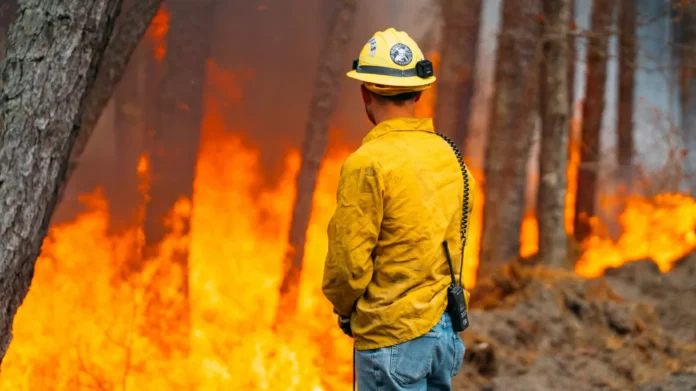Exposure to Wildfire Smoke and Heat Stress During Pregnancy Linked to Adverse Birth Outcomes, Study Finds
A recent study published in Environmental Science & Technology has shed light on the potential risks of exposure to wildfire smoke and heat stress during pregnancy. The study, conducted by a team of researchers, found that these environmental factors may be associated with adverse outcomes at birth.
The study looked at data from over 200,000 births in California between 2006 and 2012. The researchers analyzed the levels of exposure to wildfire smoke and heat stress during different stages of pregnancy, including the month before conception, the first trimester, and the entire pregnancy. They also took into account other factors such as maternal age, race, education, and smoking habits.
The findings of the study were alarming. The researchers found that exposure to wildfire smoke and heat stress during the month before conception and the first trimester of pregnancy was associated with a higher risk of adverse birth outcomes. These outcomes included preterm birth, low birth weight, and small for gestational age.
The study also revealed that the risks were more pronounced for certain groups of women. For example, women over the age of 35 and those with lower levels of education were more vulnerable to the effects of wildfire smoke and heat stress during pregnancy. This highlights the need for targeted interventions and support for these high-risk groups.
The link between exposure to wildfire smoke and adverse birth outcomes is not entirely surprising. Wildfire smoke contains a mixture of harmful pollutants, including fine particles, carbon monoxide, and volatile organic compounds, which can have detrimental effects on both the mother and the developing fetus. Exposure to heat stress, on the other hand, can lead to dehydration, heat exhaustion, and other health complications, which can also impact the health of the mother and the baby.
The study’s findings have significant implications for public health and policy. With the increasing frequency and intensity of wildfires in many parts of the world, it is crucial to understand the potential health risks associated with exposure to wildfire smoke. Pregnant women, in particular, should be made aware of these risks and take necessary precautions to protect themselves and their unborn babies.
The study’s lead author, Dr. Sarah Anderson, emphasized the importance of addressing these environmental factors during pregnancy. She stated, “Our findings suggest that exposure to wildfire smoke and heat stress during pregnancy can have serious consequences for both the mother and the baby. It is essential to take measures to reduce these risks and protect the health of pregnant women and their babies.”
The researchers also stressed the need for further research to better understand the mechanisms behind these associations and to identify effective strategies for mitigating the risks. They also highlighted the importance of implementing policies and interventions to reduce exposure to wildfire smoke and heat stress, especially for vulnerable populations.
In conclusion, this study adds to the growing body of evidence linking environmental factors to adverse birth outcomes. It highlights the need for pregnant women to be aware of the potential risks of exposure to wildfire smoke and heat stress and take necessary precautions to protect themselves and their babies. It also emphasizes the importance of addressing these issues at a broader societal level to ensure the health and well-being of future generations.

